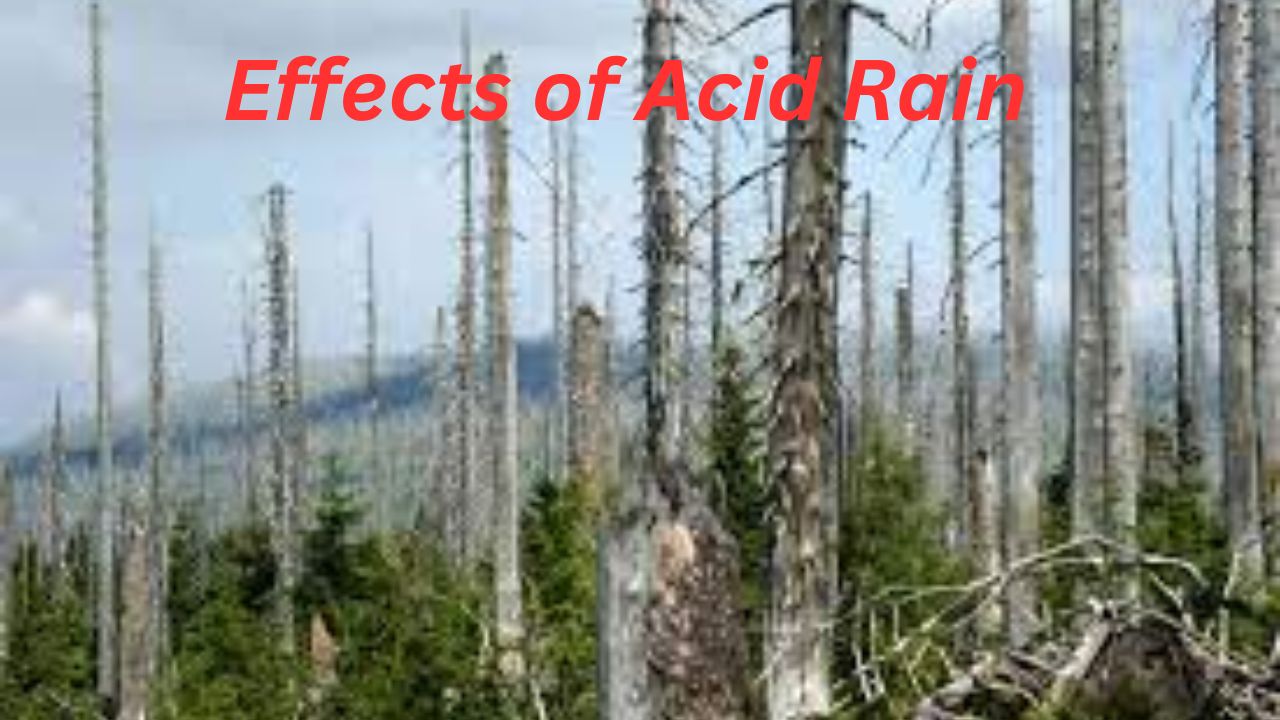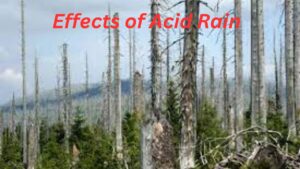

What is Acid Rain: Acid rain is rain or any other form of precipitation that is abnormally acidic, which means that it has raised the levels of hydrogen ions (low pH). Almost all the water, which also includes drinking water, has a neutral pH that comes between 6.5 and 8.5, but acid rain has a pH level lower than this, and it ranges from 4 to 5 on average. If the acid rain pH is lower it means the acid rain is more acidic. Acid rain can have very harmful effects on plants, aquatic animals, and infrastructure. Acid rain is caused by a release of sulfur dioxide and nitrogen oxide, which can react with the water molecules in the atmosphere to produce acids.
Acid Rain Definition
Acid rain, which is precipitation possessing a pH of around 5.2 or under essentially produced from the emission of sulfur dioxide (SO2) and nitrogen oxides from human activities, Almost all the combustion of the fossil fuels. In acid-sensitive landscapes, acid deposition can lower the pH of surface waters and reduce biodiversity. It also weakens the trees and increases their vulnerability to harm from other stressors, Like drought, ice, and pests.
In acid-sensitive areas, acid rain can also drain the soil of important plant nutrients and buffers, including calcium and magnesium, and can release the aluminum, bound to soil particles and rock in its toxic dissolved form. Acid rain can also contribute to the corrosion of surfaces that are exposed to air pollution and is liable for the decline of limestone and marble buildings and monuments.
Effects of Acid Rain On Plants And Human
When the acidic components get into rain or other forms of precipitation, Acid rain can be very harmful to trees, and it can make plants and trees die. Acid rain can not harm you to walk or swim, but the particles of acid rain can damage your lungs if you breathe them in. Acid rain is a large term for any precipitation that has more acid in it than normal.
For example, acid rain can have sulfuric acid or nitric acid. Precipitation includes not only rain but also fog, hail, sleet, and snow. Acid rain is harmful to the environment and your health.
How We Can Prevent Acid Rain
Acid rain is caused by burning fossil fuels, So the best way to prevent acid rain is to find other ways to get power. The Environmental Protection Agency (EPA) has already started on this to prevent acid rain. The Acid Rain program sets a cap on the amount of sulfur dioxide and nitrogen oxides that power plants can release into the air. It can also offer the reasons for reducing these emissions
Here in the below, we have given some particular actions that can help prevent acid rain
- Use battery-operated tools
You can switch from gas-powered tools to ones with rechargeable batteries.
- Drive vehicles that do not produce pollution
You should avoid using vehicles which cause air pollution. Instead, you can use electric and hydrogen-powered cars which do not produce air pollution and hybrid vehicles burn less fuel than gas-powered ones. They can also lower the fuel consumption and pollution.
- Third is conserved energy
Because using less energy means producing less energy. Turn off electronics when you are not using them, lower the heat when you are not using them, and limit air conditioning. You can also replace the incandescent light bulbs with compact fluorescent light bulbs or choose Energy Star appliances which use less energy.
- Use renewable energy
Using renewable energy will create less pollution than fossil fuels. If you are living in a deregulated state, you can opt for an electricity provider that uses renewable energy instead of one that uses fossil fuels.
- Drive less Vehicles
The exhaust from cars, trucks, and buses expel nitrogen oxides and sulfur dioxide. So you should consider walking or biking somewhere in place of driving when you can, or you can use public transport.
- And last is burned less
If you have a fire, keep it small and burn only wood, not other waste, particularly in cities that are liable to have higher air pollution. And also wood burning fireplaces should only burn wood, too.
